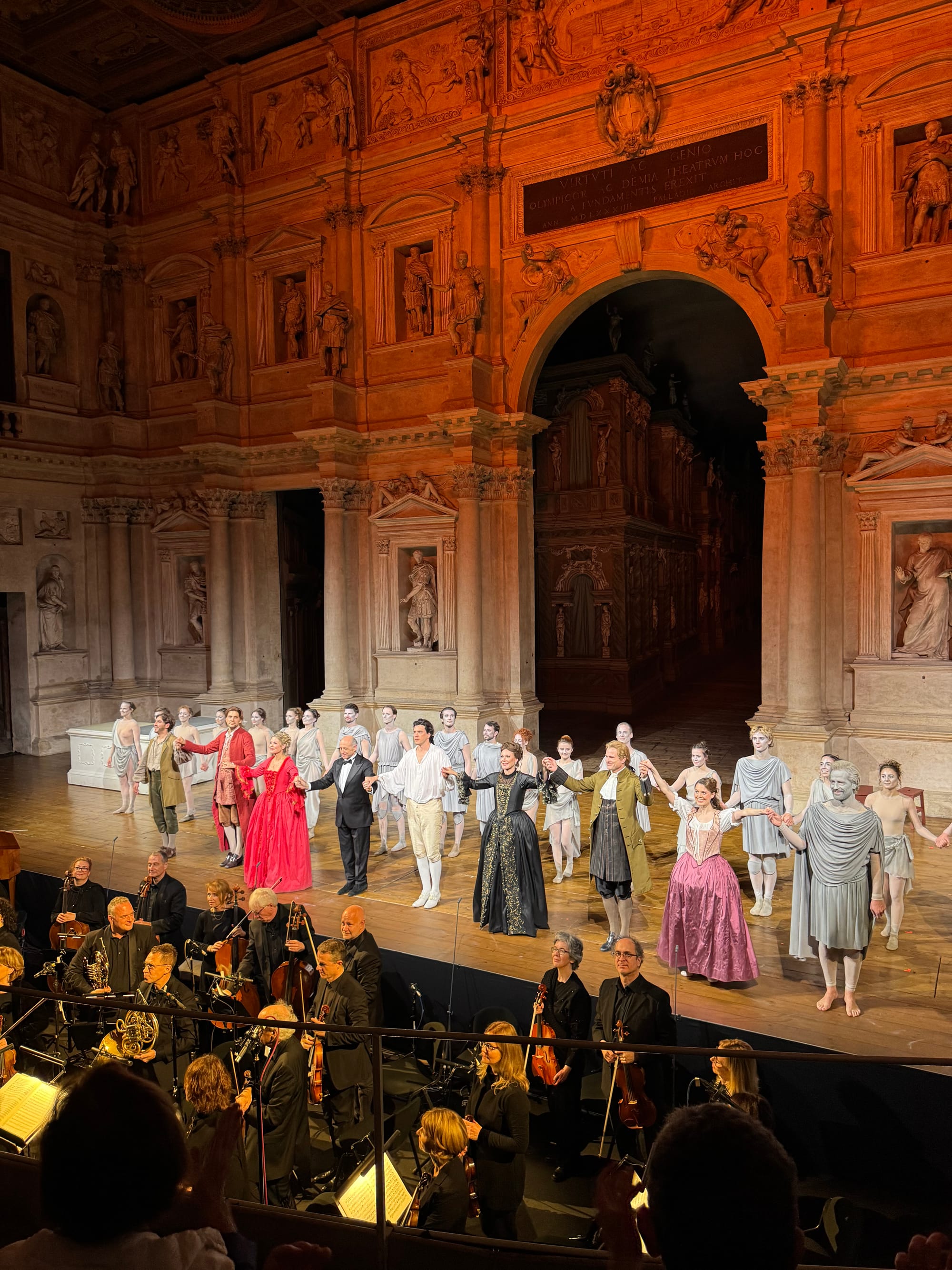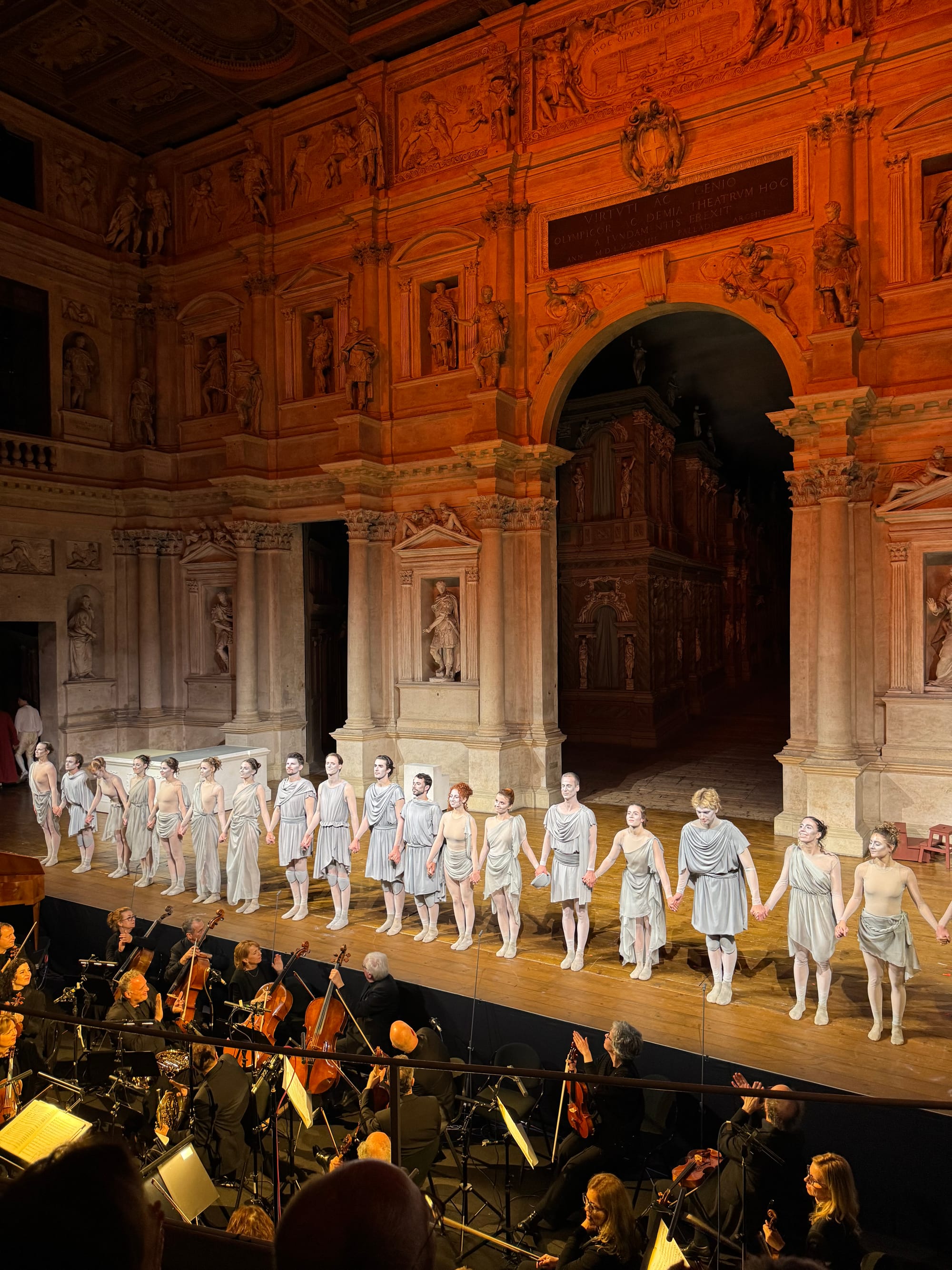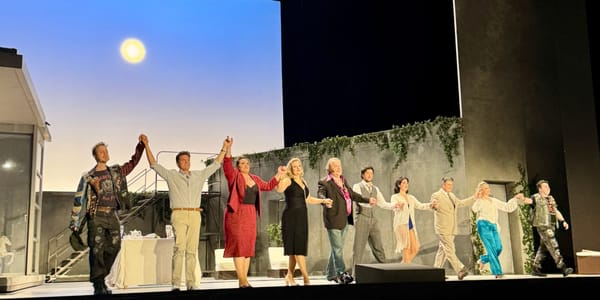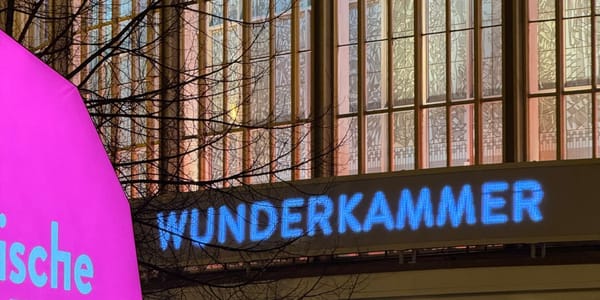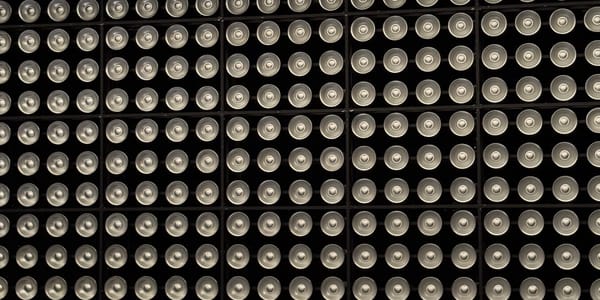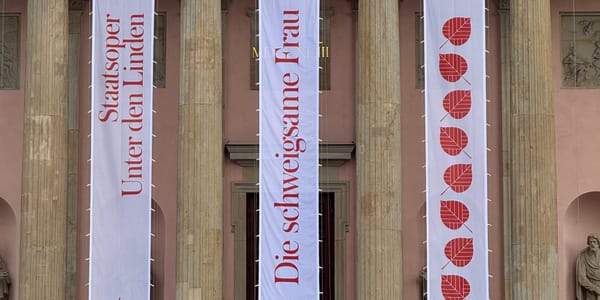Don Giovanni at Vicenza Opera Festival
Between marble grandeur and moral decay, a centuries-old story of charm and cruelty becomes a mirror for power, privilege, and our age of artifice.
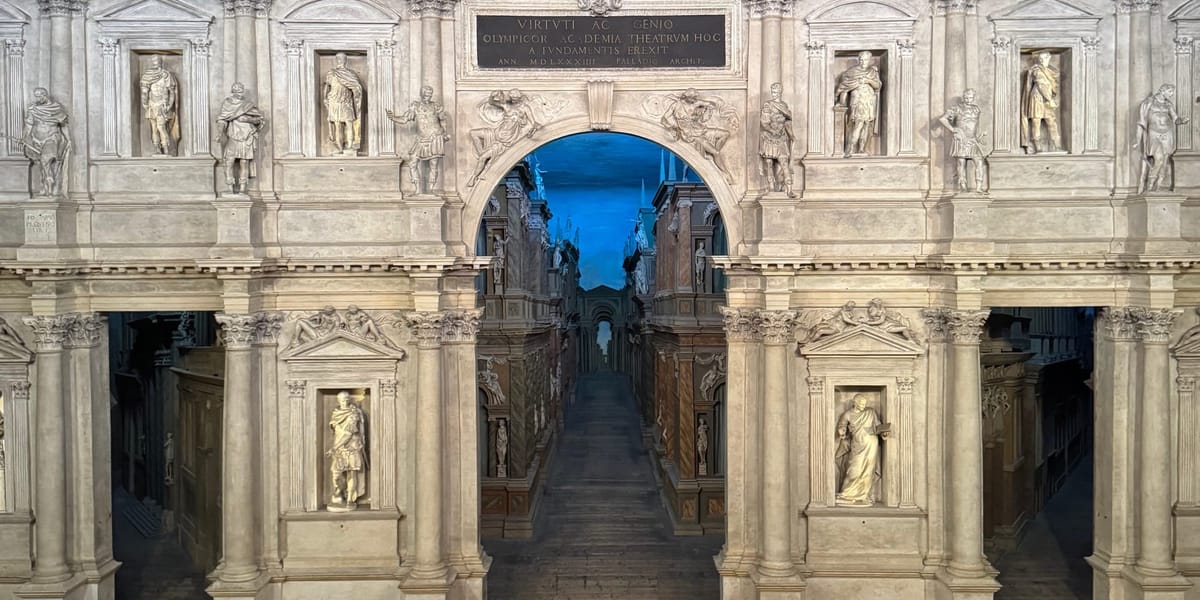
🎭 Don Giovanni
🎶 Wolfgang Amadeus Mozart, 1787
💭 Iván Fischer, 2025
🏛️ Teatro Olimpico Vicenza
🗓️ 30.10.2025
"COME HOME WITH ME, AND IF YOU PROMISE TO BE LESS JEALOUS, I'LL HEAL YOU."
The Vicenza Opera Festival is one of those cultural experiences that feels almost mythical in its specificity. Once a year, Iván Fischer and the Budapest Festival Orchestra bring an opera to Andrea Palladio’s Teatro Olimpico—the world’s oldest surviving indoor theatre, a Renaissance dreamscape of marble, illusionistic perspectives, and 440 years of history layered into its walls. Sitting inside this space feels communal and sacred at once: a steep horseshoe of stone steps where the audience leans shoulder-to-shoulder, close enough to see the singers breathe.
It’s also a space that inherently resists production spectacle. The stage itself—a fixed Roman cityscape, eternal and self-sufficient—renders any elaborate scenography redundant. Fischer’s Don Giovanni embraces that. The staging is minimal: two movable blocks, rotated and reassembled across scenes, become podiums, palaces, or street corners. Most of the production’s visual dynamism comes not from props but from people. A versatile chorus serves as statues, dancers, acrobats, and furniture—they form a couch for Leporello, a window for Donna Elvira, and, in the final scene, a mountain of bodies that swallows Don Giovanni whole.

It’s a clever device: human architecture replacing set design. The ensemble becomes part of the moral landscape of the piece—witnesses, participants, furniture, fate.
The production otherwise stays close to tradition. Costumes evoke 18th-century authenticity—powdered wigs, velvet frocks, and layered gowns—and the intimate scale of the Olimpico lends Mozart’s music an almost chamber-like clarity. Without a deep orchestra pit, the sound seems to rise directly from among us; and because the singers are only meters away, recitativi acquire the immediacy of spoken theatre. You can read micro-expressions, feel breath, watch how sound becomes gesture. It’s as if Don Giovanni has returned to its origins: a moral play performed in a Renaissance theatre for a tightly knit civic audience.
Power and Ambiguity
While the accompanying program description asks us to refrain from judging Giovanni, I cannot help but see this production as a story about power. Giovanni is not the romantic anti-hero of older readings but a selfish, class-entitled aristocrat who manipulates everyone around him. His abuse of women is mirrored by his cruelty to Leporello—the servant he mocks, beats, and gaslights, yet who cannot leave because dependency is part of the system. It’s Giovanni’s world, and everyone else is just living in it.
Fischer’s staging reinforces this hierarchy visually: Giovanni often stands atop the rotating podiums, literally looking down on others. The physical height becomes social metaphor—the Enlightenment man elevated above consequence.
And yet, the music complicates this moral clarity. Mozart gives Giovanni some of the most seductive melodies of the opera; his arias shimmer with charm, wit, even sincerity. It’s as though he’s trying to seduce the audience as well, to convince us that someone who sings so beautifully can’t possibly be evil. There’s a dissonance here, between action and music, crime and sound. Beauty as manipulation, melody as deceit.
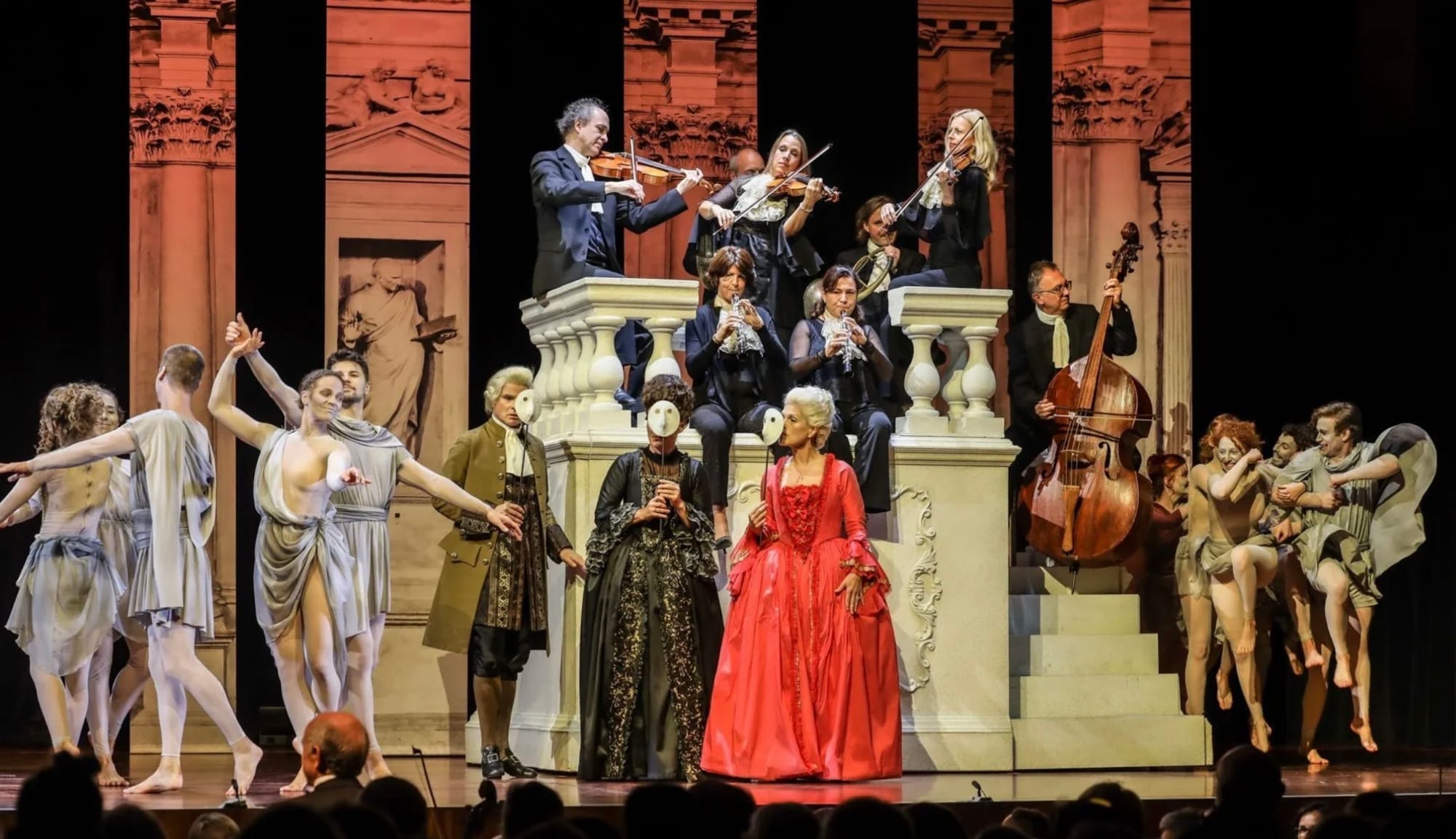
Women and their (Limits of) Agency
In this reading, the women of Don Giovanni are trapped in a lattice of social and gendered power. Zerlina, the peasant bride, knows something is off about Giovanni but follows anyway—perhaps because, in a world built on class hierarchy, refusal isn’t truly an option. Even the “good” relationship between Zerlina and Masetto reveals shades of misogyny: jealousy, distrust, ownership.
Donna Elvira embodies the opera’s most complex ambiguity. She is intimately aware of Giovanni‘s reputation and spends most of the plot warning other women of his danger. And yet, her attraction lingers. Her confusion isn’t moral weakness but an honest depiction of how love, lust, and trauma blur boundaries. Mozart’s music doesn’t absolve her; it exposes the irrationality of human desire.
Aesthetic Pleasure, Ethical Tension
The production‘s choir of “living statues” lends the finale a ritual intensity. As the Commendatore returns—face painted marble-gray like a Roman work of art—the chorus builds a human mountain, dragging Giovanni into the pit as the entire stage is steeped in crimson light. It’s one of those moments where theatrical invention meets mythic satisfaction: the wicked punished, order restored, the audience satisfied.
And yet, not every artistic decision feels as self-aware. During the palace party, a female acrobat in a skintight bodysuit covered with musical notes performs suggestive poses in front of the on-stage musicians—at one point splitting her legs wide as though the score is being read from her groin. Perhaps intended as satire on objectification, it risked reproducing the very misogyny the opera should be critiquing. The audience’s giggles only reinforced that unease.
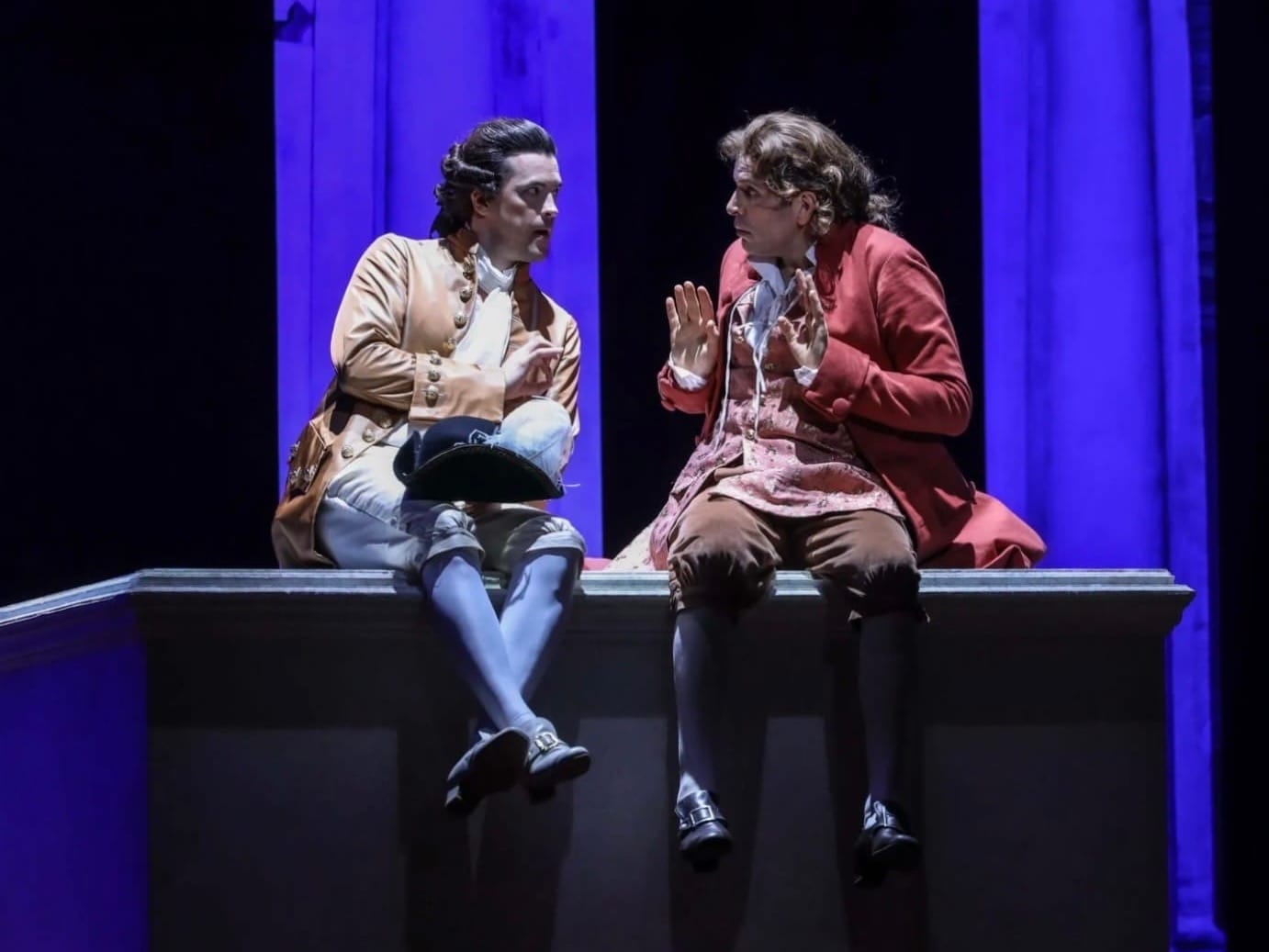
The Truth of Music, the Irony of the Image
Iván Fischer has spoken about truth in music—about the way opera, as a live, human art form, stands as a counterpoint to a digital age saturated with artificiality. In a time of generative AI, deepfakes, and algorithmic slop, opera offers a rare guarantee: that what you hear and see is real, that it is produced by human breath, muscle, and intention.
That ideal made the festival’s visual branding feel umcomfortably dissonant. The program booklet and posters for Don Giovanni appear, at least at second glance, to have been created with the help of generative AI: a generically handsome man—not one of the singers—leans nonchalantly amid a crowd of statuesque women with grotesquely distorted, almost inhuman faces. They claw at him, pull at his clothes, their fury rendered uncanny by the subtle artifacts of machine vision. He, meanwhile, remains serenely composed, the eternal seducer untouched.
Ultimately, it’s impossible to know with certainty how the image was made—and perhaps that, in itself, should give us reason for pause. We already live in a world where it has become nearly impossible to distinguish the artificial from the real. The irony, of course, is that this ambiguity now clings even to an art form built on human presence. It’s a quiet call for vigilance: to ask where opera should go in a world that prizes efficiency over ethics, where algorithms echo our own biases, and where art risks losing its human weight.

Reflections on Power, Then and Now
I want to offer a comment about my own positionality here. I’m a millennial who grew up in an urban, progressive bubble, acutely aware of how power, gender, and class shape our interactions—and how (cultural) institutions mirror those hierarchies. Watching this Don Giovanni, I can’t help but view it through that lens.
This production, though musically exquisite and scenically ingenious, doesn’t challenge the opera’s structural misogyny; if anything, it leans into it. That choice might be deliberate—to show us the ugliness rather than rewrite it—but it leaves the work teetering between critique and complicity.
Looking around the audience at the Olimpico—a crowd of wealth, whiteness, and polite exclusivity—I’m reminded that opera’s own power structures remain stubbornly intact. Perhaps that’s what makes Don Giovanni still relevant: it holds up a mirror, not only to its corrupt hedonist, but to a society constantly renegotiating who gets to act freely, who belongs, and whose stories get told.
And in the end, maybe that’s the modern moral of Don Giovanni: that beauty and violence, charm and abuse, can coexist in one breathtakingly seductive form. The task for us, as listeners and spectators, is to keep seeing both.
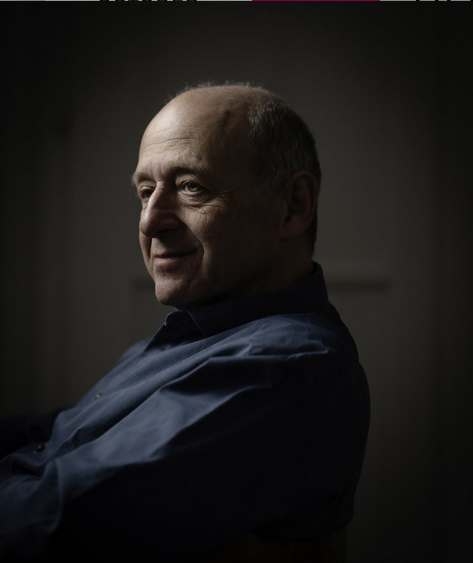
Cast
Conductor and director: Iván Fischer
Lighting and set designer: Andrea Tocchio
Costume designe: Anna Biagiotti
Technical Directo: Róbert Zentai
Stage Manager: Udo Metzner
Repetiteur: Nóra Füzi
Movement director: Georg Asagaroff
Movement coach: Fanni Czvikli
Don Giovanni: Andrè Schuen
Leporello: Luca Pisaroni
Donna Anna: Maria Bengtsson
Donna Elvira: Miah Persson
Don Ottavio: Bernard Richter
Zerlina: Samantha Gaul
Masetto: Daniel Noyola
Commendatore: Krisztián Cser
Dance Ensemble of the Ivan Fischer Opera Company
Students of the University of Theatre and Film Arts
